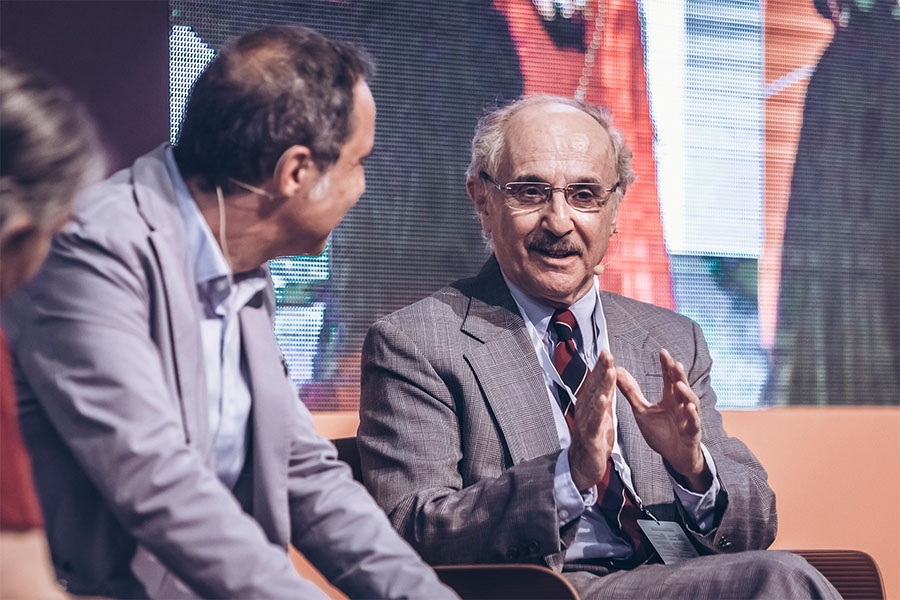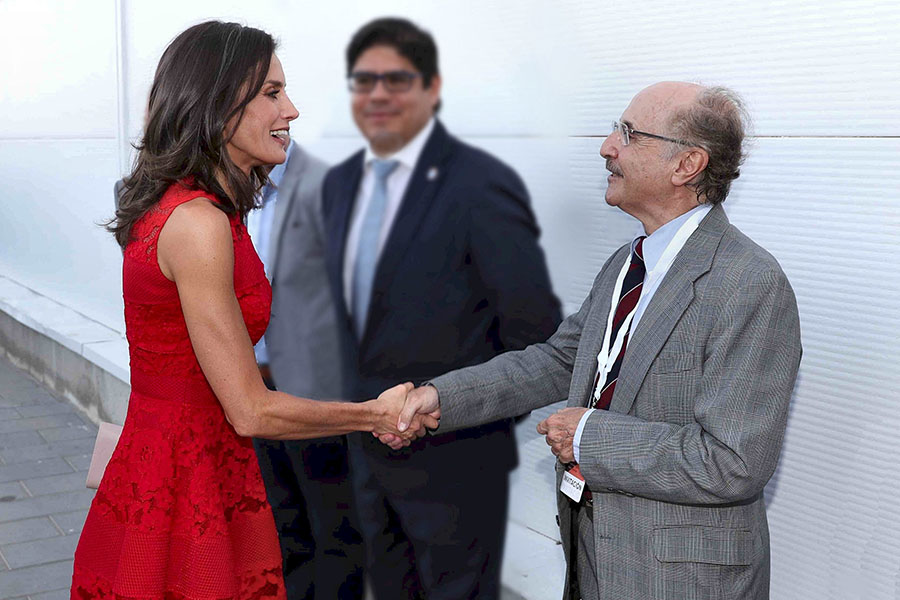
Rubin Speaks at Spain's World Sustainable Urban Food Centre Launch
- Communications Analyst
- 412-268-6741
On July 22, Edward S. Rubin, Alumni Chair Professor of Environmental Engineering in the Departments of Engineering and Public Policy and Mechanical Engineering, spoke about the links between climate change and urban food systems at a high-profile event in Valencia, Spain.
The event inaugurated the World Sustainable Urban Food Centre (CEMAS)—a joint initiative between the Food and Agriculture Organization (FAO) of the United Nations and the Valencia City Council. The Center’s mission is to promote, manage and coordinate actions aimed at establishing sustainable food systems in cities around the world.
Queen Letizia Ortiz of Spain (pictured below with Rubin) and 250 invited guests and officials from countries across the globe attended the event. Rubin was joined on-stage by Vandana Shiva of India, a well-known writer and advocate of sustainable food systems, in a discussion of sustainability needs moderated by the Centre Director Vicente Domingo.

Rubin’s remarks highlighted two key ways in which climate change and urban food systems interact. One is the direct impact of climate change on food production and distribution. For example, studies have documented decreased yields of major crops like wheat, corn and rice in response to the increased temperatures and changes in precipitation that have already occurred worldwide. The increased frequency of storms, droughts, fires, floods and other extreme events and disruptions due to climate change will have increasing impacts on urban food systems if measures are not taken to mitigate and adapt to climate change.
The second major link is that food production and distribution are also major contributors of greenhouse gas emissions that cause climate change. When one considers all the steps involved in producing different types of food and bringing it to our tables, the magnitude of total emissions is second only to those of the energy sector. Developing sustainable food systems that reduce and minimize greenhouse gas emissions is thus a high priority going forward.
Rubin, who will serve on the Centre's new advisory council, noted, however, that “these changes are not just going to happen by themselves. Leadership is needed at all levels.” He pointed to the extraordinary breadth of political, business and educational leaders in the audience, urging them to take up the challenges—and opportunities—of moving toward more sustainable urban food systems.
Additional speakers at the event included Mayor of Valencia Joan Ribó, President of the Valencian regional government Ximo Puig, FAO Director General José Graziano da Silva and FAO's Spain Director Enrique Yeves.